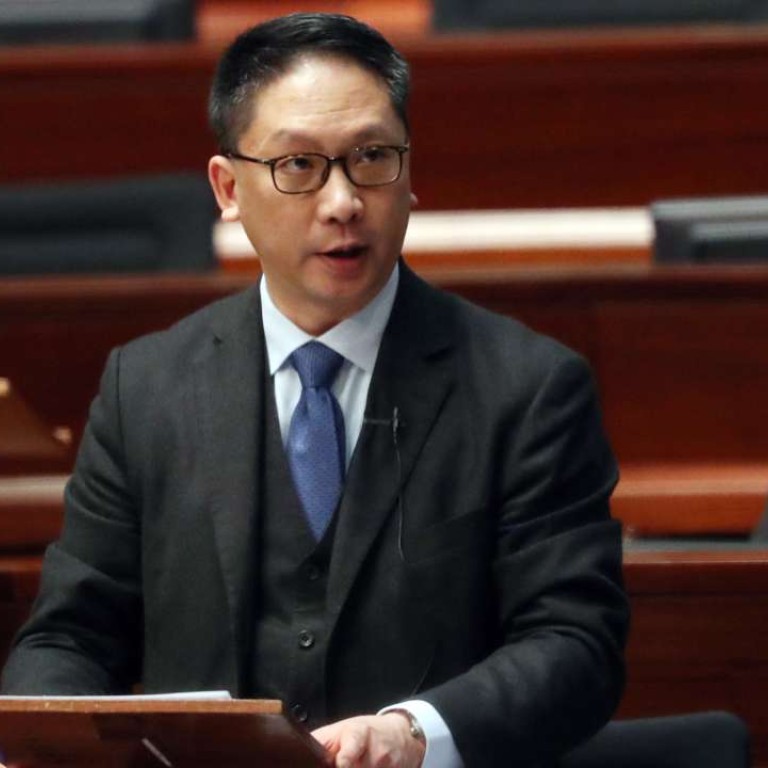
Hong Kong’s justice minister rejects idea that political pressure has stalled action against Occupy protesters
Lawmaker calls slow court progress a ‘joke’, but Rimsky Yuen says the cases take time because of sheer numbers arrested and volume of evidence
The justice minister has rejected suggestions by pro-establishment lawmakers that political pressure is behind the slow progress in prosecuting Occupy Central leaders and says his department has already advised police on the criminal liability of the organisers.
Their arrests add to the 955 protesters held during the civil disobedience movement. But only 216 have been dealt with in court.
Thousands took their demands for genuine universal suffrage to thoroughfares across Admiralty, Central, Wan Chai, Causeway Bay, Tsim Sha Tsui and Mong Kok in 2014, and occupied the sites for up to 79 days following Beijing’s announcement of a restrictive political reform framework for selecting the chief executive in 2017.
At the Legislative Council meeting on Wednesday, pro-government lawmaker Junius Ho Kwan-yiu described the slow progress and court outcomes as a joke as he questioned if the department was encountering difficulties in its prosecution work.

“We’ve been told that investigations take time but it’s been a long time and the prosecution numbers are limited,” Leung said. “The three main figures responsible and the organisers have yet to be prosecuted. This gives the impression that the Department of Justice was under political pressure.”
But Secretary for Justice Rimsky Yuen Kwok-keung replied: “I can say this clearly and definitely to lawmakers, the president and Hong Kong society that there was absolutely no political pressure in handling Occupy Central or any other criminal cases.”
He explained that such cases took time because many people had been arrested and there was a substantial volume of evidence, with numerous cases interconnected.
Apart from the 216 who had gone to court, Yuen said police had referred 287 cases – including those who might have led the movement – for legal advice, which the justice department had responded to within four months by the end of last year.
These cases involved 335 investigation reports, 300 witness statements, 130 hours of video recordings and about 80 items of non-video exhibits.
“As the Department of Justice understands, the police are following up on the legal advice,” Yuen said. He could not comment further as it might affect criminal procedures.
A police spokesman said the force had nothing to add to Yuen’s comments.
As of January 31, Hong Kong courts had convicted 81 people and bound over a further 42 in relation to the street protests. The charges included illegal assembly, arson, possession of offensive weapons, criminal damage, wounding, assaulting police, theft, criminal intimidation, indecent assault and possession of dangerous drugs.
Punishments had ranged from jail terms of up to 10 months, probation orders of between 12 and 15 months, community service orders of 80 to 180 hours, and fines ranging from HK$300 to HK$6,000.

